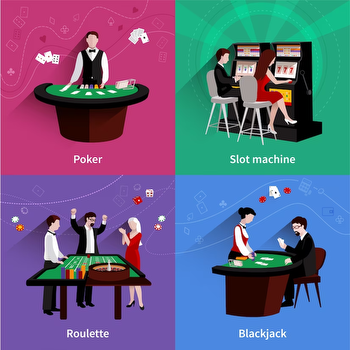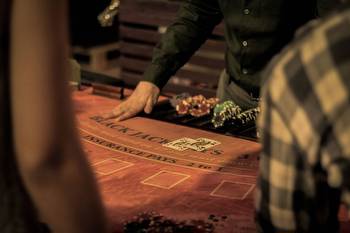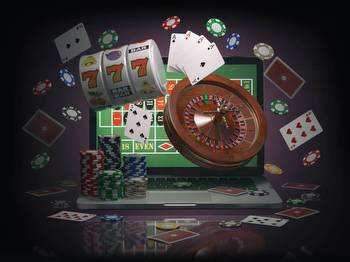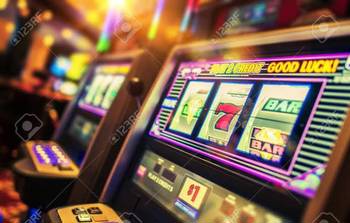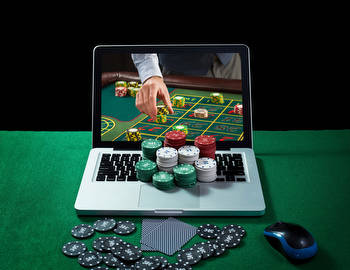Hardware For Live Dealer Casinos

The online gambling industry got up and running in 1996. Its establishment happened predominantly thanks to Antigua and Barbuda legalizing the possibility for companies based in this Caribbean nation to offer games of chance over the World Wide Web. Microgaming, developing the first internet casino software, and WagerLogic creating the payment processing tech required for operators to receive money transfers from their customers also contributed significantly.
In 2003, the UK internet gaming giant Playtech decided to step away from slots and pioneer a new online gambling genre, live dealer games. It did so via a studio aimed at the Asian market. However, due to global weak internet penetration and bandwidth speeds, this gaming category did not take off until the early-2010s. Now, it is etching close to competing with reel-spinners as the favored pick for most of the sector’s player pool, given that nowadays, you would be hard-pressed to find a gambler that does not love to play live dealer blackjack online.
Currently, without argument, the top industry entity in this sphere segment is Evolution, followed by Pragmatic Play Live, VIVO Gaming, Fresh Deck Studios, and the mentioned Playtech. Most of these providers use much of the same technology to provide an authentic casino experience to remote gamblers. It includes the hardware discussed below.
It is important to note that live dealer studios are not elementary operations that can get run easily by a small number of people. On the contrary, Evolution’s Malta facility alone employs a staff of over three hundred. It has an on-site gym, leisure areas, spacious bathrooms (with showers), and more. These amenities allow employees to feel comfortable before, in-between, and after sessions. The company also provides a free taxi service to presenters to and from work, ensuring that everyone comes well-rested to their job and leaves stress-free regarding getting back home.
While most live game providers utilize tables similar to those found at land-based gaming venues, such as ones from Abbiati Casino Equipment, GameBridge, and CTC Holdings, to save space, some of the roulette tables are half ones in streaming provider studios.
Each dedicated game area has its lighting setup, and the walls have a sound-deadening foam to help maintain clear audio quality. The tables usually have between one to three HD cameras from brands like Sony, Panasonic, JVC, and BlackMagic, pointed on them, capturing the gambling action. Popular models used include the Sony HXC-FB80 and JVC’s GY-HC900STU.
The camera feeds provided get viewed in a monitoring control room, MCR for short. These leverage Internet Protocol (IP) networking technology for centralized or distributed control room operations that allow for scalability and flexibility, utilizing TCP (Transmission Control Protocol)/IP as its communication protocol. The hardware in these rooms also features game control units that take RAW video files and convert them into ones appropriate for streaming. Essentially, they are encoders paired with the studio’s video system. Such lower-end hardware runs upwards of $500. Higher-end studio ones cost over a thousand dollars. An established choice for most professionals is the LiveU Solo which has HDMI/SDI inputs, 4K resolution, a max bitrate of 8 Mbps, and H.264 compatibility. That said, most streaming studios go with the Teradek VidiU Go or Pro, the Hikvision 4-Channel Video Encoder, or the Roland VR-1HD AV Streaming Mixer.
Naturally, no monitoring control room would be complete without a few monitors per viewing station, an audio setup that facilitates communication between the monitoring staff and the dealers, and a high-speed fiber optic internet connection as fast as 1 Gbps. What is also interesting to note is that most of these live game studios get plugged into the same electricity circuits as Airports and hospitals, so they get priority energy supply in the case of any general issues. Naturally, they have generators in place that activate in the case of an emergency if everything else fails. Providers cannot afford for games to stop abruptly, as they cater to a global user pool, playing at all times.
While most laypeople would think there is no tech used at blackjack and baccarat studio tables, that is not true. Any live card game featured at an online casino implements an optical reader. That is an optical recognition camera system, which dealers run pulled cards through before setting them on player positions. These devices are nothing new and have gotten implemented at land-based casinos since the mid-1990s.
The top products on the market from this category that land-based and online operators incorporate to eliminate collusion and card swapping, providing maximum gaming transparency at card tables, are Scientific Games’ i-Shoe Auto and Angel’s Super Angel Eye.
At roulette tables, for game safety, RFID Technology using 13.56 MHz with PJM gets utilized in the chips in play. Security cameras also do their part.
This article was written in collaboration with online gambling experts.








